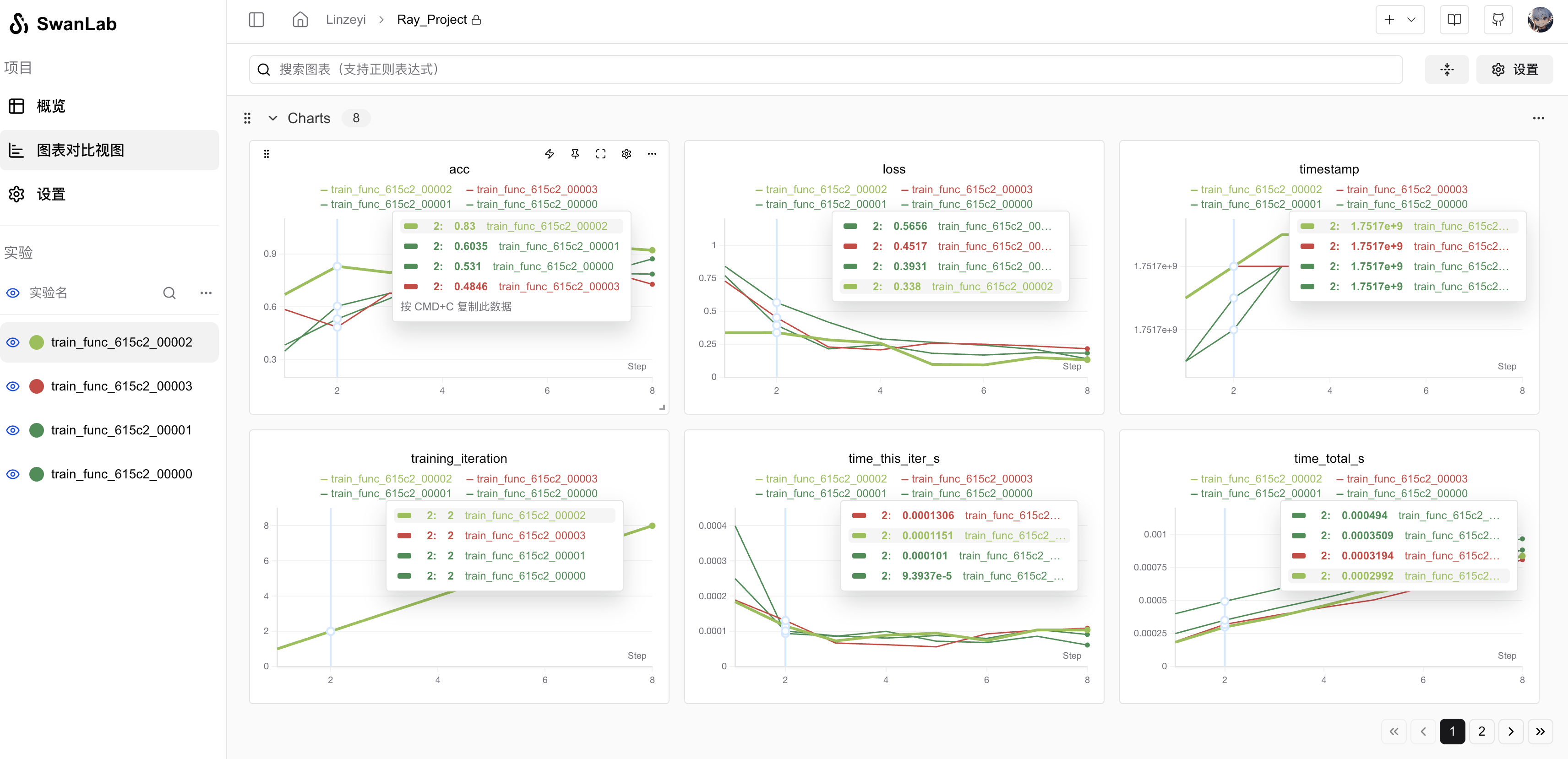Ray
Ray is a distributed computing framework specifically designed for large-scale parallel tasks and reinforcement learning applications. It was developed by a research team from the University of California, Berkeley, aiming to simplify the process of building high-performance, scalable distributed applications. Ray supports Python and Java, and can be easily integrated into existing machine learning, data processing, and reinforcement learning workflows.

SwanLab supports Ray experiment logging. You can conveniently record experiment metrics and hyperparameters through SwanLabLoggerCallback.
1. Import SwanLabCallback
python
from swanlab.integration.ray import SwanLabLoggerCallbackSwanLabLoggerCallback is a log recording class adapted for Ray.
The parameters that can be defined in SwanLabLoggerCallback include:
project: Project nameworkspace: Workspace name- Other parameters consistent with
swanlab.init
2. Integration with tune.Tuner
python
tuner = tune.Tuner(
...
run_config=tune.RunConfig(
callbacks=[SwanLabLoggerCallback(project="Ray_Project")],
),
)3. Complete Example
python
import random
from ray import tune
from swanlab.integration.ray import SwanLabLoggerCallback
def train_func(config):
offset = random.random() / 5
for epoch in range(2, config["epochs"]):
acc = 1 - (2 + config["lr"]) ** -epoch - random.random() / epoch - offset
loss = (2 + config["lr"]) ** -epoch + random.random() / epoch + offset
tune.report({"acc": acc, "loss": loss})
tuner = tune.Tuner(
train_func,
param_space={
"lr": tune.grid_search([0.001, 0.01, 0.1, 1.0]),
"epochs": 10,
},
run_config=tune.RunConfig(
callbacks=[SwanLabLoggerCallback(project="Ray_Project")],
),
)
results = tuner.fit()